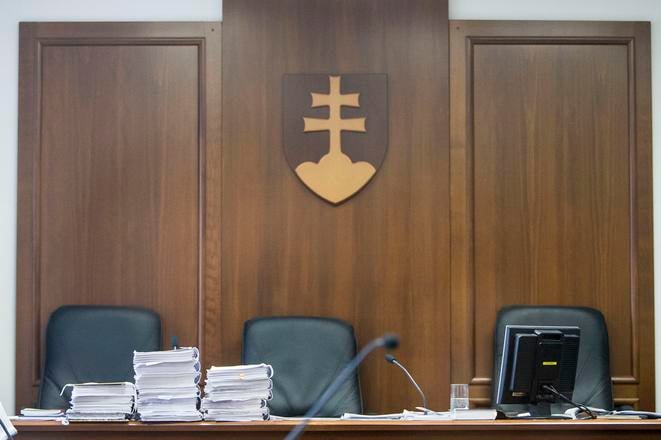With polls showing a dramatic lack of public faith in the Slovak judiciary, the Justice Ministry has announced plans for the biggest shake up to the country’s court system for more than two decades.
Public trust in the judiciary among Slovaks is low. In a Eurobarometer survey conducted in November 2019, 72 percent of respondents in Slovakia said they had no trust in the judiciary.
Among EU countries, only people in Croatia expressed a higher level of distrust of their justice system. The average across the bloc was 45 percent.
The leading party in the coalition government, the Ordinary People and Independent Personalities (OĽaNO) party won elections earlier this year pledging to tackle corruption, especially in the judiciary. Since coming to power there have been a number of high-profile arrests – and charging with serious crimes - of judges, some of whom have served in the highest courts.

Other judges had been arrested towards the end of the term of the previous Smer-led government, including the party’s own nominee as former state secretary of the Justice Ministry, Monika Jankovská.
But observers agree that the current administration is visibly acting to tackle corruption in the justice system.
Now the Justice Ministry has come forward with far-reaching changes to the court system in Slovakia it says will help root out corruption in courts and improve the judiciary.
The Ministry has said the changes, which will see the number of courts drastically reduced, is aimed at breaking corruption chains at lower levels of the court system, improving the quality of rulings and speeding up the decision-making process, by allowing judges to specialise in a particular area.
Justice Minister Mária Kolíková said the changes are fundamental to raising the quality of Slovakia's judiciary.
“We can expect rulings to be delivered faster and with better quality,” Kolíková told local media as she presented her proposal on November 23.
The new map
The Justice Ministry has been working on changes to the country’s ‘court map’ since before Kolíkova was appointed in March. Kolíkova had worked on them as state secretary (deputy minister) under her predecessor Lucia Žitňanská.


 Courtroom (source: Sme)
Courtroom (source: Sme)